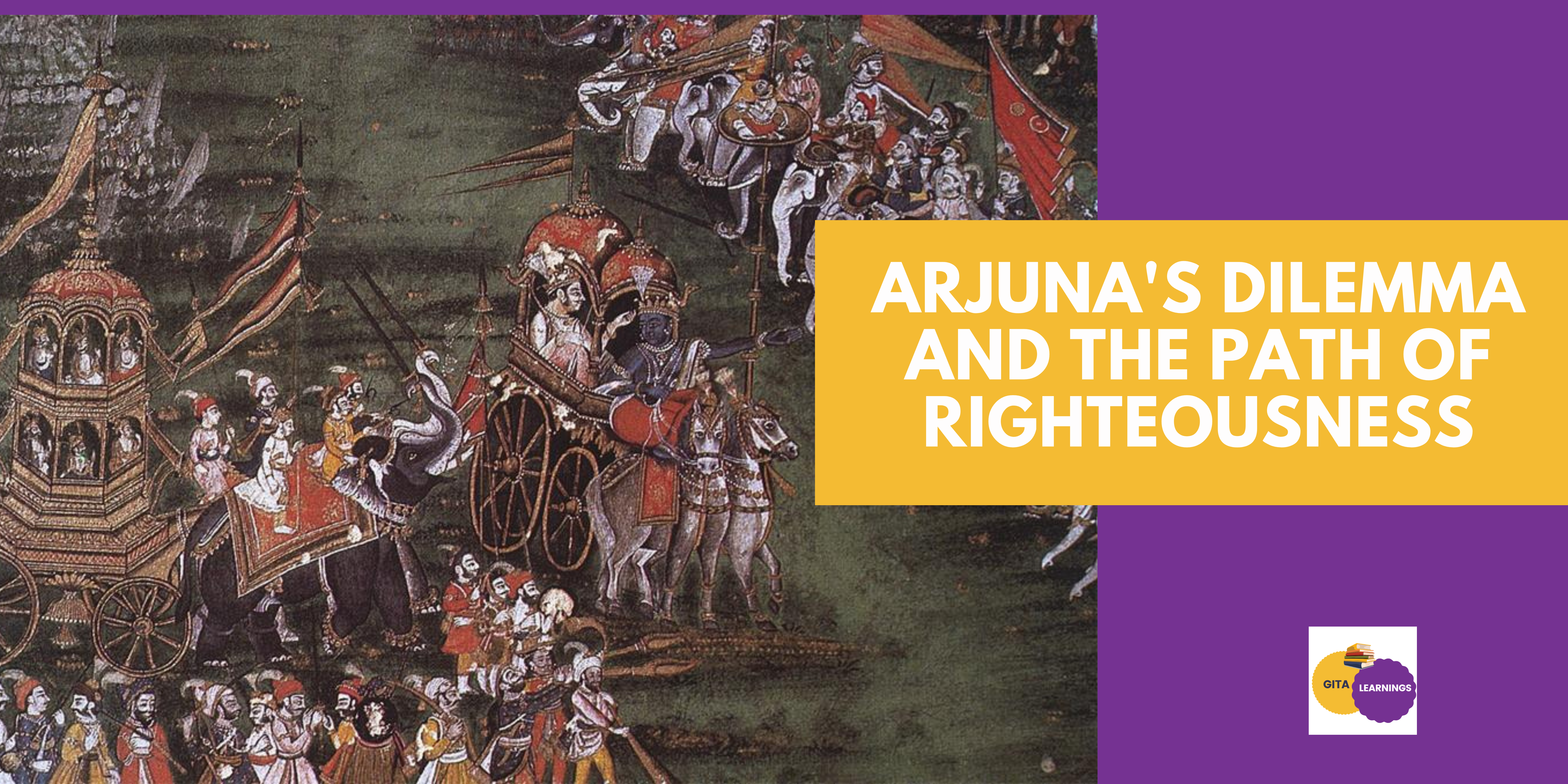The Bhagavad Gita, a timeless scripture of profound wisdom, holds within its verses invaluable teachings that offer guidance on navigating life’s dilemmas and ethical complexities. One of the pivotal moments in this ancient Indian epic is Arjuna’s dilemma, where the warrior prince faces a profound moral crisis on the battlefield of Kurukshetra. This moment, paired with Lord Krishna’s divine counsel, unveils a path of righteousness that continues to inspire and enlighten.
Understanding Arjuna’s Dilemma: The Struggle Within
Arjuna, a skilled warrior and one of the Pandava princes, stands at the precipice of war, confronted with a heart-wrenching dilemma. He gazes across the battlefield and recognizes the faces of his own family, friends, and revered elders among the opposing forces. Overwhelmed by sorrow and compassion, he questions the righteousness of the battle and the act of taking up arms against those he loves. Arjuna’s inner conflict mirrors the moral quandaries that humans often face, where duty and emotions clash in a struggle for clarity.
Krishna’s Divine Counsel: Illuminating the Path
In response to Arjuna’s turmoil, Lord Krishna, his charioteer and spiritual guide, imparts profound teachings that lay the foundation for the entire Bhagavad Gita. The guidance provided by Krishna addresses the essence of duty (dharma), the transient nature of life, and the significance of selfless action. The teachings encourage Arjuna to fulfill his duty as a warrior without attachment to the outcomes, emphasizing the importance of acting with integrity and righteousness.
Arjuna’s Identity and Initial Upset
Arjuna, revered as a capable warrior and a key figure among the Pandavas, finds himself in a state of distress and confusion. The question arises: Why would such a formidable warrior experience a moral crisis? The answer lies in the depth of Arjuna’s character and his reverence for life’s sanctity. As a righteous individual, Arjuna is torn between his loyalty to his family and his duty to uphold righteousness.
The Ethical Dilemma in the Mahabharata
The ethical dilemma presented in the Mahabharata revolves around the clash between familial bonds and the principles of dharma. Arjuna’s predicament raises the timeless question of whether one should prioritize personal relationships or adhere to a higher moral duty. This dilemma serves as a reminder that life’s choices are often complex, requiring individuals to navigate through the intricacies of right and wrong.
The Bhagavad Gita’s teachings encapsulate Arjuna’s journey from confusion to enlightenment. It emphasizes the essence of selfless action, devotion, and the pursuit of righteous conduct. By anchoring oneself in duty and releasing attachment to the results, individuals can attain a state of inner harmony even in the face of challenging circumstances.
To delve deeper into the core message of the Bhagavad Gita, you can explore the “Main Message of The Bhagavad Gita,” which sheds light on the transformative teachings that continue to resonate through the ages.
In conclusion, Arjuna’s dilemma and the Bhagavad Gita’s teachings on the path of righteousness provide timeless guidance for individuals grappling with moral choices. The scripture’s wisdom transcends eras, offering a beacon of light to navigate the complexities of life with integrity and wisdom.

